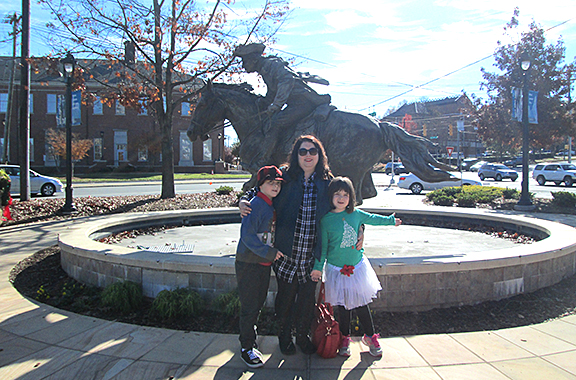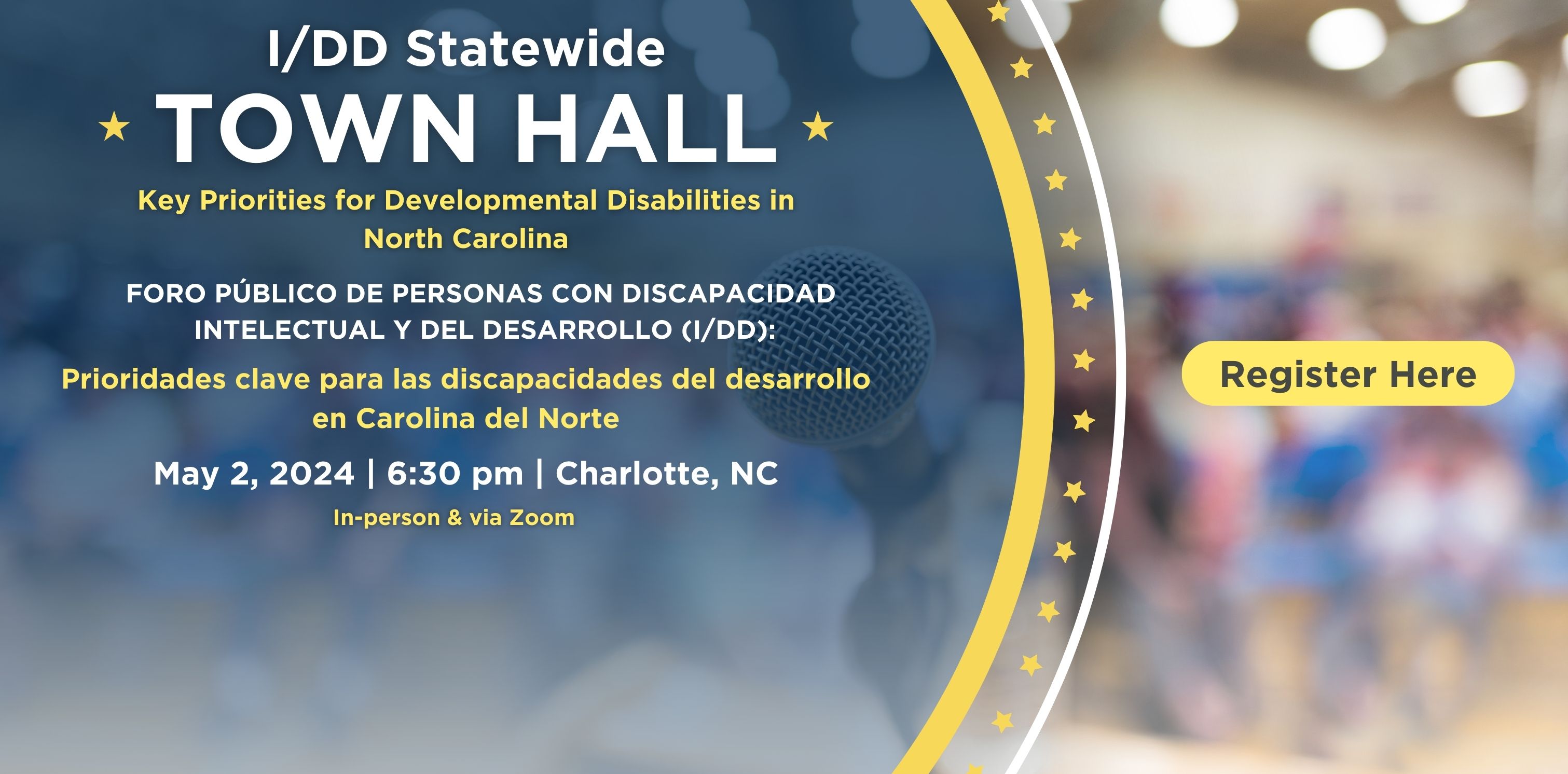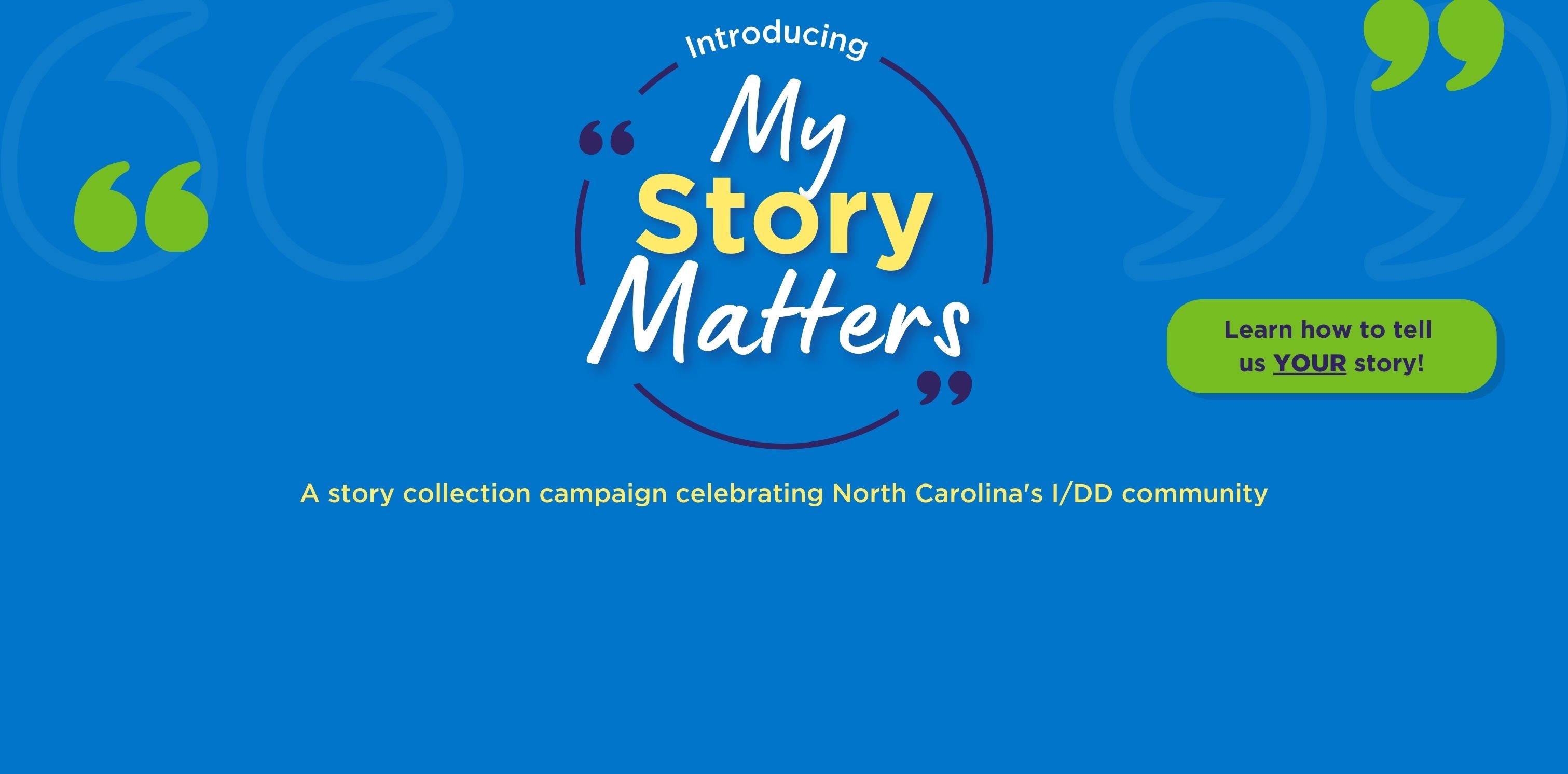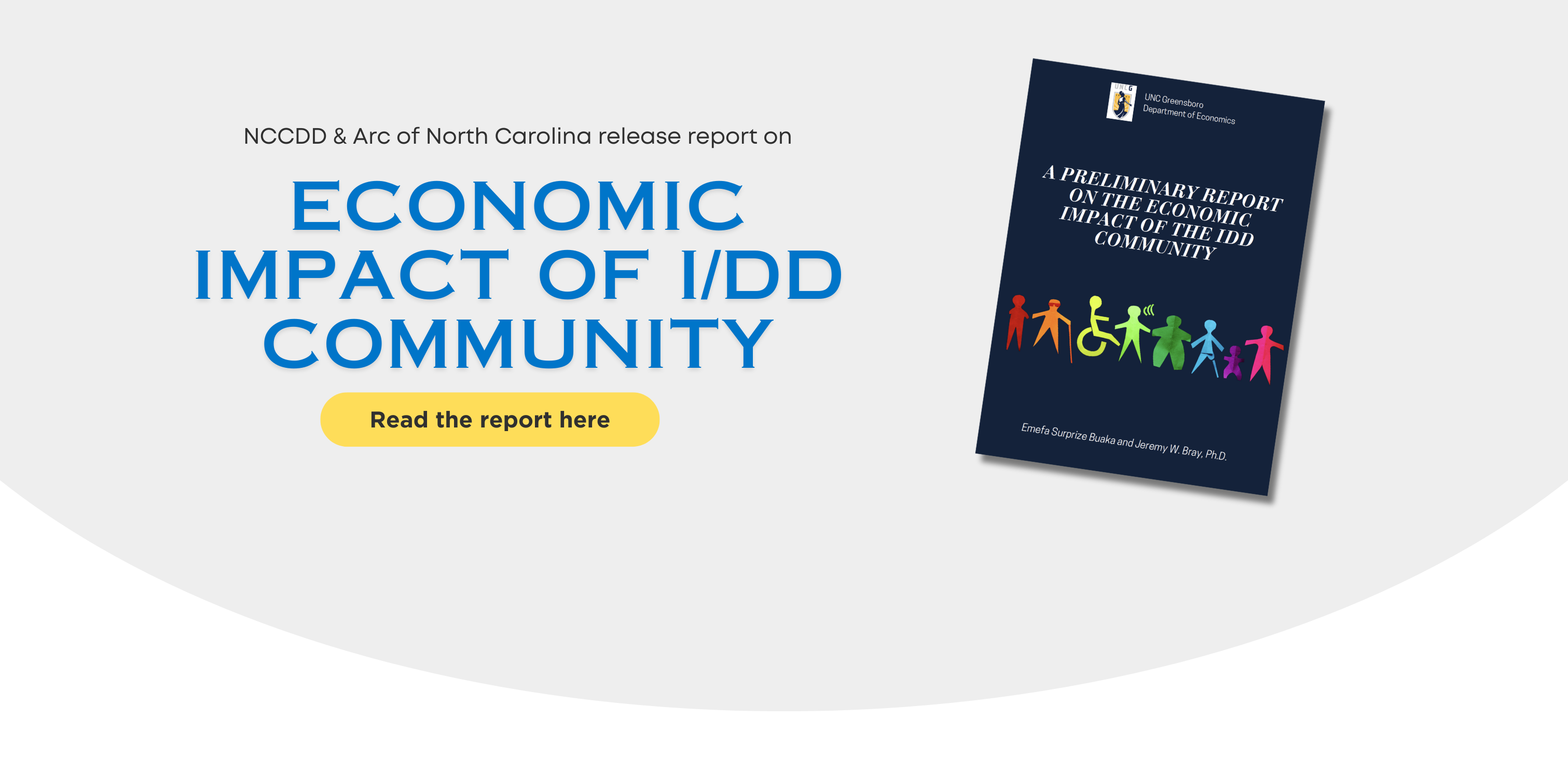By Amanda Bergen, Ph.D., NCCDD Council Member
As a Charlotte, North Carolina resident, we count the fight for colonial freedom from May 20, 1775, when the Mecklenburg Resolves were published. Like a lot of North Carolinians, a few branches of my family tree were rooted and growing in Mecklenburg County before, during and after the American Revolution. We take pride that our Mecklenburg Resolves influenced Founding Fathers (and Mothers) during the American Revolution. We were, and still are, General Cornwallis’ Hornet’s Nest of Rebellion. I cannot reference a time in North Carolina history when the fight for positive social change was dead or dormant. Amanda Bergen and children in Uptown Charlotte before the ADA25 Road to Freedom busAs an educator, I mention to my students that our county, state and country’s historical documents are amazing. But, it’s rare for generation-changing documents to just appear. There is usually a conflict necessitating the change. Putting desired change into words is a challenge. To make words timeless is even harder. This July brings to my mind another time that our country created a history-changing document: the Americans with Disabilities Act (1990).
Amanda Bergen and children in Uptown Charlotte before the ADA25 Road to Freedom busAs an educator, I mention to my students that our county, state and country’s historical documents are amazing. But, it’s rare for generation-changing documents to just appear. There is usually a conflict necessitating the change. Putting desired change into words is a challenge. To make words timeless is even harder. This July brings to my mind another time that our country created a history-changing document: the Americans with Disabilities Act (1990).
What may be surprising to some is that I feel one of the roots of the Americans with Disabilities Act (ADA) is rooted in the Declaration of Independence, which is also rooted in the Mecklenburg Resolves. Are we, or are we not, all created equal? Granted, individuals may have different accessibility needs over the course of their lifetimes. However, as Americans, do we believe that each of us is equal and have certain unalienable rights? Are we born with rights that cannot be taken away by a government? If we are, how do we protect those rights? By the late ‘80s, our fellow Americans decided an additional and more comprehensive federal civil rights law to protect against disability-related discrimination was necessary.
To fully appreciate how revolutionary and rebellious the ADA was at its 1988 introduction to Congress, we would have to transport ourselves back in time to 1986 when the National Council on Disability recommended that the ADA be created and submitted to Congress. Data on employment among individuals with disability was limited. The Civil Rights Act had been in place for over 20 years, but the law did not explicitly include those living with a disability. The legal roots were slowly being grown in the ‘60s and ‘70s. Case rulings, legal precedents and landmark decisions were consistently rolling out during these decades. But, what was next?
Major changes rippled through the disability community. Grassroots efforts were snowballing into positive social change. Disability issues were transitioning from reactionary topics like deinstitutionalization, discrimination and harmful medical procedures were giving way to more proactive discussions around education inclusion, transportation access, and employment. I feel that the most revolutionary aspect of the ADA is its proactive nature. The law was written not only for that time, but also for generations that had not been born yet.
In my next blog post, I’ll talk about what the ADA looked from my perspective as a child in the late '80s and now as an adult in 2018.
Recent Posts
The North Carolina Council on Developmental Disabilities will host I/DD…





